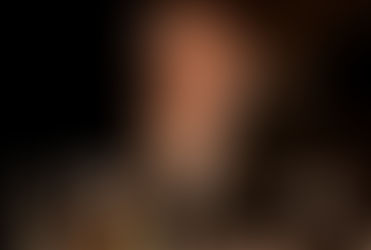The Magic Flute
- Chris ORourke
- May 22, 2019
- 4 min read

***
Once Upon a Not So Different Time
Autumnal trees, red heavy with leaves, materialise out of the mist. Young children race between their trunks, like playful sprites, as other, often sinister shades pass through the darkened wood. In Irish National Opera’s ambitious reimagining of Wolfgang Amadeus Mozart’s "The Magic Flute,” in partnership with Irish Chamber Orchestra, director Caroline Staunton sets out to interrogate the mythic in Mozart’s much loved opera. If Staunton’s brave approach never quite rises to the level of myth, it most certainly succeeds at the level of fairytale, where morals and virtue strain against unmanly vice. All held up for scrutiny in Staunton’s stringently contemporary investigation of a once upon a not so different time.

Fairytales loom large in "The Magic Flute", first performed in 1791, as Prince Tamino and his sidekick, Papageno, travel to the evil Sarastro’s temple at the behest of the Queen of the Night to rescue her kidnapped daughter, Pamina. Undertaking a journey in which trails and tests await them, armed with a magic flute and a music box, or glockenspiel, their reward, should they succeed, being true love’s happily ever after. Throughout, references, both local and universal, from Wren Boys to Orpheus and Eurydice, Red Riding Hood to The Wizard of Oz, serve to offer a rich avenue for contemporary interpretation. One that looks decidedly uneasy once events shift inside the temple and fairytale otherworldliness is juxtaposed with historical imagery. Here fable sits uncomfortably with the real world, with Katie Davenport’s hard working costumes suggesting an Irish peasantry and English landed gentry, as Staunton's interrogates rationality and colonialism. Opening the way for a ham-fisted ending that raises as many questions as it attempts to address concerning gender and national identity.

Frequently delivering moments of spectacle, "The Magic Flute" never quite rises to the level of spectacular as Staunton trades power for the thoughtful and thought provoking. Moralising on the opera’s problematic morality, it offers less a Dionysian celebration and more of an interrogation of the values inherent in a Dionysian celebration. Throughout, Mozart's rambunctiously subversive Singspiel finds Staunton injecting some serious subversions of her own, interrogating masculinity and misogyny, racism and religion, issues of consent and of Ireland's colonial past. As gender and gentry become foregrounded an uneasy balance is achieved wherein moments of perfect synergy with Mozart’s sublime music and Emanuel Schikaneder’s libretto are set against others where Staunton’s reassessment agenda feels unconvincingly and unimaginatively shoehorned in. Leaving unaddressed gaps in Schikaneder’s repetitively themed libretto whose overworked, idiosyncratic motifs are known to risk bordering on the tedious and tiresome at the best of times. None of which is helped by some staid staging. With Ciaran Bagnall’s impressive, if sometimes constricting set frequently pushing cast downstage into a cramped playing area, movement is often minimised, leaving singing compositionally anchored inside stiff, crowded tableaus. It’s often left to Bagnall’s excellent lighting to imbue proceedings with mood and atmosphere. Something Bagnall does incredibly well.

With several roles being alternated over different nights, there's very good reasons to see this production at least twice. Even if singing leans towards solid deliver and conservation of energy rather than rising to the giddy heights of Mozart’s energetic music. Wonderfully conveyed by Irish Chamber Orchestra under the careful direction of Peter Whelan, (alternating with conductor and chorus director Sinead Hayes). Baritone Gavan Ring’s superb Papageno, resembling a cowardly lion with all his charm, humanity, and humour, is an absolute joy. Tenor Nick Pritchard’s low key Tamino, (alternating with tenor Tyler Nelson), is also superb. With both accompanied by three Munchkin-like Wren Boys, boy sopranos Nicholas O’Neill, Seán Hughes and Oran Murphy, as they set out to save the lady and the day. Soprano Anna Devin delivers a stand out performance as the impassioned Pamina (alternating with soprano Jennifer Davis), her voice clear, resonant, and soaring with power. Soprano Audrey Luna as Queen of the Night (alternating with Kim Sheehan), part banshee, part Maleficent, bravely tackles the demands of this demanding role and of the challenging aria Der Holle Rache. The three ladies, soprano Rachel Croash, mezzo-soprano Sarah Richmond, and mezzo-soprano Raphaela Mangan, prove irresistibly delightful in conveying Mozart’s playful humour. Bass Lukas Jakobski’s authoritative Sarastro delivers both menace and power, while tenor Andrew Gavin’s devious Monostatos conveys all manner of wonderful creepiness.

In attempting to unearth issues embedded in Mozart’s much loved opera, "The Magic Flute" never quite erupts for emphasising its head over its heart. Here narrative, already problematic, gives ground to intentional interrogations, crafting a series of impressive set pieces built around key songs. Many of which are simply outstanding, none more so than Devin’s superb renditions of Tamino Mein! and Ach, Ich Fühl’s. Playful, humorous, steeped in contemporary relevance and with some sublime moments, “The Magic Flute” is a brave production that asks important questions of life and opera. All of which whets the appetite for Irish National Opera’s 2019/2020 season, recently announced, which promises to deliver some incredibly exciting productions.
"The Magic Flute" by Wolfgang Amadeus Mozart, with libretto by Emanuel Schikaneder, presented by Irish National Opera in partnership with Irish Chamber Orchestra, runs at The Gaiety Theatre until May 25.
For more information visit The Gaiety Theatre.
For information on Irish National Opera’s 2019/2020 Season visit Irish National Opera.



















